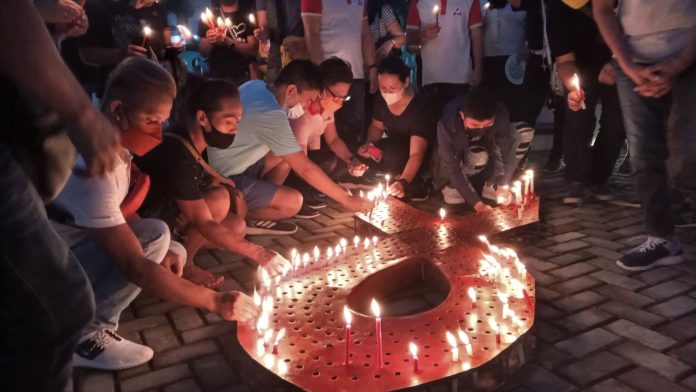The human immunodeficiency virus (HIV) remains “a silent epidemic” amid the continuing threat of the coronavirus disease.
Health advocate Fritizie Estoque said the spread of HIV infection remains a concern among groups offering interventions to people living with the virus.
She said the COVID-19 pandemic has overshadowed the HIV-AIDS issue after the government declared a national health emergency in 2020.
Estoque, vice president of Misamis Oriental Cagayan de Oro AIDS Network, said information campaign on HIV and AIDS by health service providers and their allies in the private sector has not been prioritized since the start of the coronavirus pandemic.
HIV is a virus that attacks the immune system and AIDS, or acquired immunodeficiency syndrome, is a term that can only be used when HIV has caused severe damage to the immune system.
“In the midst of the pandemic we do not stop with what we have to do because HIV is still threatening us, still claiming lives,” said,” Estoque said.
She said the HIV information and education campaign must be sustained even with the concerted efforts to reduce the number of COVID-19 cases.
“No pandemic, no quarantine, no lockdown can stop the spread of HIV, especially during the pandemic,” said Estoque during the International AIDS Candlelight Memorial in Cagayan de Oro City on May 15.
She noted that there was no education campaign conducted during the pandemic and the youth have not been reminded to keep themselves safe.
“The problem is, HIV remains to be a silent epidemic,” she said.
As of January 2021, there were 890 confirmed HIV-positive individuals in the country, and 96 percent, or 852, of the reported cases were male.
The US National Center for Biotechnology Information said the “HIV crisis in the Philippines has worsened during the COVID-19 pandemic.”
The Philippines’ Department of Health has reported that HIV testing decreased by 61 percent during the pandemic while the average number of people newly diagnosed with HIV per day had only decreased by about 37 percent, from 35 a day in 2019 to 22 a day by the end of 202.
“This may indicate that a substantial number of individuals was left undetected in 2020,” said the US report.
In 2021, 28 new HIV infections were detected every month, according to the Health department.
Grace Dael, focal person for people living with HIV of the Department of Social Welfare and Development, said stigmatization of those infected is still a major concern.
“We must improve health literacy,” she said, adding that more government engagement with key population and community-led driven initiatives are important.”









